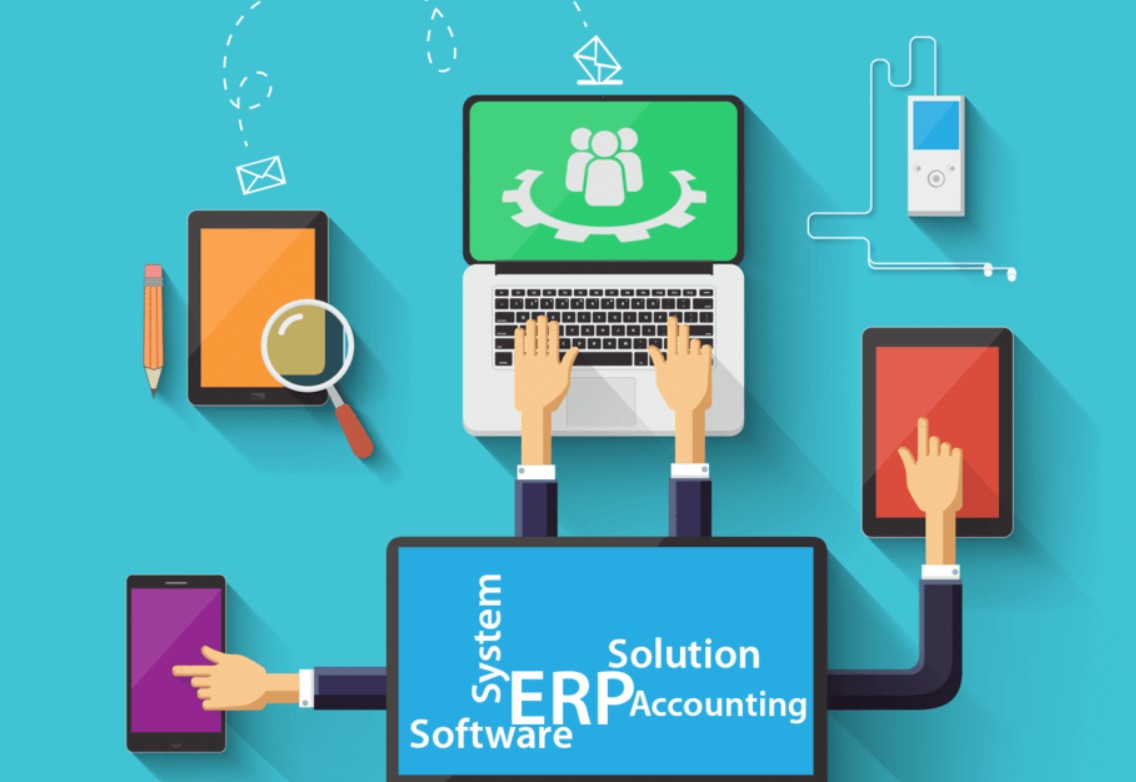
Enterprise Resource Planning (ERP) software has become the backbone of modern businesses, helping organizations streamline operations, improve efficiency, and make data-driven decisions. In India, the ERP software development landscape is evolving at a rapid pace, thanks to technological advancements, digital transformation, and the growing adoption of cloud solutions. As companies across industries—from manufacturing to retail and healthcare—continue to modernize their operations, the future of ERP software development in India looks more promising than ever.
In this article, we will explore the future of ERP software development in India, highlight the latest trends to watch, and understand how businesses can leverage these innovations for sustainable growth.
1. Growing Demand for Cloud-Based ERP Solutions
The shift from on-premise ERP systems to cloud-based solutions is one of the most significant trends shaping the future of ERP software development in India. Businesses are moving towards cloud ERP because it offers:
- Cost-effectiveness (no heavy upfront infrastructure investment).
- Scalability to meet growing business needs.
- Accessibility from anywhere, enabling remote and hybrid work models.
- Faster implementation and updates without major downtime.
With the rise of cloud providers in India and increased internet penetration, cloud ERP adoption is expected to dominate the future market.
2. Integration of Artificial Intelligence (AI) and Machine Learning (ML)
The future of ERP software development in India will be closely tied to the integration of AI and ML technologies. ERP solutions are no longer just data repositories—they are becoming intelligent systems capable of:
- Predicting demand and inventory requirements.
- Automating repetitive tasks like invoice processing and payroll.
- Enhancing decision-making with predictive analytics.
- Offering personalized insights through AI-driven dashboards.
For example, an AI-enabled ERP can help manufacturers forecast supply chain disruptions, thereby minimizing losses. This level of intelligence will make ERP systems indispensable for businesses of all sizes.
Also Read: Why Startups Should Partner with Cybersecurity Companies in India
3. Mobile-First ERP Development
With India being one of the largest mobile-first markets in the world, the demand for mobile-friendly ERP solutions is skyrocketing. Mobile ERP applications enable employees, managers, and executives to:
- Access data in real-time.
- Approve requests and workflows on the go.
- Monitor operations without being tied to a desktop.
Future ERP software development will focus heavily on responsive, intuitive, and secure mobile ERP apps that empower the workforce with flexibility and agility.
4. Rise of Industry-Specific ERP Solutions
Generic ERP systems are giving way to industry-specific ERP software tailored to the unique needs of various sectors. In India, industries such as manufacturing, healthcare, education, e-commerce, and logistics require specialized modules that address their challenges.
For instance:
- Healthcare ERP integrates patient data, billing, and compliance tracking.
- Retail ERP helps manage inventory, customer loyalty programs, and POS integration.
- Education ERP streamlines student records, admissions, and online learning tools.
This trend will push ERP developers in India to design customized, niche-specific solutions rather than one-size-fits-all products.
5. Emphasis on Data Security and Compliance
As businesses become increasingly data-driven, cybersecurity and compliance will play a crucial role in ERP development. India’s regulatory environment, including data protection laws like the Digital Personal Data Protection Act (DPDP Act), 2023, will influence how ERP systems are designed.
Future ERP software will feature:
- Advanced data encryption.
- Role-based access control.
- Automated compliance reporting.
- Integration with local legal frameworks.
This ensures that sensitive financial, customer, and employee data remains safe from cyber threats and meets regulatory standards.
6. Internet of Things (IoT) Integration
IoT-enabled ERP solutions are expected to transform industries like manufacturing, logistics, and agriculture. By integrating IoT devices with ERP systems, businesses can:
- Track real-time equipment performance.
- Monitor supply chain activities.
- Automate inventory updates through smart sensors.
- Improve predictive maintenance.
For example, a logistics company can connect IoT sensors in trucks to ERP systems to track delivery routes, fuel consumption, and delays—optimizing operations significantly.
7. Low-Code and No-Code ERP Development
The rise of low-code and no-code platforms is making ERP development more accessible to businesses with limited technical resources. Companies can now:
- Customize ERP workflows without extensive coding.
- Quickly adapt software to changing business needs.
- Reduce dependency on expensive development cycles.
In India, where small and medium enterprises (SMEs) are rapidly adopting ERP, this trend will encourage greater ERP penetration across the market.
8. Blockchain in ERP Software
Blockchain technology is still in its early adoption stage but holds great potential for ERP software in India. With blockchain integration, ERP systems can:
- Enhance data transparency and traceability.
- Improve supply chain security.
- Automate smart contracts between vendors and clients.
Industries such as pharmaceuticals, food processing, and export-import businesses can greatly benefit from blockchain-enabled ERP solutions.
9. Focus on User Experience (UX)
Modern businesses no longer accept complex, outdated ERP interfaces. The future of ERP software development in India will emphasize user-friendly designs, simplified dashboards, and intuitive navigation.
Developers are focusing on:
- Minimalistic design for easy adoption.
- Personalized dashboards with role-based data.
- Seamless integrations with other tools like CRM, HRMS, and project management apps.
This user-first approach ensures higher employee engagement and better ROI on ERP investments.
10. Expansion of ERP in the SME Sector
While ERP solutions were once limited to large enterprises, India’s SMEs are now embracing ERP to stay competitive. The availability of affordable, scalable, and cloud-based ERP software is making it possible for smaller businesses to adopt these systems.
Future ERP development in India will continue to cater to this growing segment, offering modular solutions that allow SMEs to pay only for the features they use.
Conclusion
The future of ERP software development in India is bright, driven by innovations in cloud computing, AI, IoT, blockchain, and mobile technology. As more industries adopt ERP solutions, the focus will be on customization, affordability, security, and scalability.
For Indian businesses, adopting these next-generation ERP systems will not only streamline operations but also give them a competitive edge in the digital economy. ERP developers, on the other hand, must keep innovating to meet the unique demands of diverse industries while ensuring data security and compliance.
In the coming years, ERP will evolve from being just a management tool to becoming the central nervous system of businesses in India, empowering organizations with intelligence, agility, and long-term sustainability.







